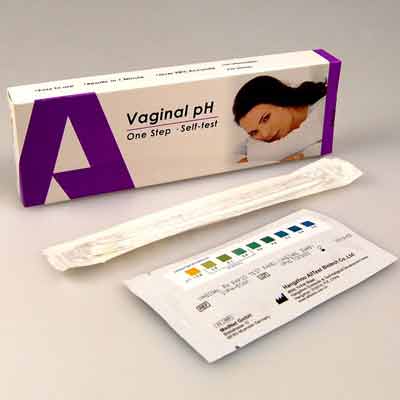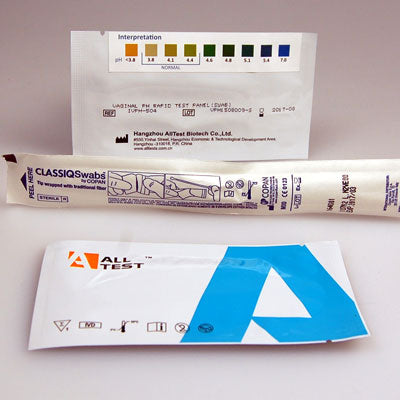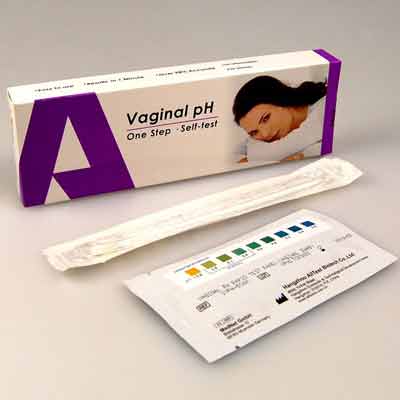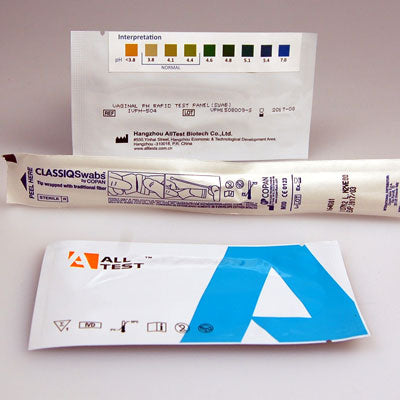Valuemed
ALLTEST Vaginal PH Cassette Test Kit
ALLTEST Vaginal PH Cassette Test Kit
Out of stock
Couldn't load pickup availability
ALLTEST home vaginal ph test kit
The ALLTEST Vaginal pH test kit is designed for at-home use to help monitor vaginal pH levels. This test can aid in detecting imbalances that might indicate conditions like bacterial vaginosis or yeast infections. The product includes a set of easy-to-use pH strips, providing quick results to help you take timely action if needed.
Key features of the ALL TEST vaginal ph test
- A simple swab test to determine vaginal pH as an aid to the investigation of vaginal discharge or odour
- Complete swab test and test cassette pack with full instructions
- Determines if vaginal pH is within a normal range.
- A low vaginal ph can indicate a disturbed vaginal flora and is associated with bacterial vaginosis
- Quick and easy to use home test kit
- Easy to interpret results with colour comparison chart
- Results in just one minute
FAQs about vaginal ph test
1. Why is vaginal ph important? Vaginal pH is important because it helps maintain the natural balance of bacteria and yeast in the vaginal environment. A healthy pH level typically ranges from 3.8 to 4.5, supporting the growth of beneficial bacteria like lactobacilli. A disruption in pH can lead to infections like bacterial vaginosis or yeast infections, like candida which can cause discomfort and other symptoms. Monitoring vaginal pH can help detect potential imbalances early.
2. What does the pH level indicate? A normal vaginal pH level is usually between 3.8 and 4.5. A higher pH could indicate an infection or imbalance.
3. Can the vaginal ph test kit replace a doctor's consultation? The ALL TEST vaginal ph test kit is a screening tool but should not replace medical advice or diagnosis.
4. What causes vaginal pH to change? Changes in diet, hygiene products, menstruation, sexual activity, and infections can alter vaginal pH.
5. How can I maintain a healthy vaginal pH? Avoiding harsh soaps, using breathable cotton underwear, practicing safe sex, and staying hydrated can help maintain a balanced pH.
6. Can hormonal changes affect vaginal pH? Yes, hormonal shifts during pregnancy, menopause, or menstrual cycles can influence vaginal pH levels.
7. What are the signs of an imbalance in vaginal pH? Signs include unusual discharge, itching, burning, or an unpleasant odour, which could indicate infection.
8. What should i do if my vaginal ph is abnormal; when i test it? If your vaginal pH is abnormal, it may indicate an infection or imbalance. You should monitor symptoms such as unusual discharge, itching, or discomfort. It is advisable to consult your doctor or healthcare professional for a proper diagnosis and treatment plan. Avoid self-diagnosing, as a medical expert can recommend the best course of action for your health.
9. Does vaginal candida (vaginal thrush) cause an abnormal vaginal ph? Yes, candida (a yeast infection) can cause an imbalance in vaginal pH, typically raising the pH above the normal range. A pH above 4.5 may indicate a fungal infection like candidiasis. It's important to see a obtain appropriate treatment if you suspect a yeast infection or experience symptoms like a heavy thick white discharge, itching or burning. If you suspect that you may have candida we have a home candida test kit available to buy online here. Other vaginal infections including some sexually transmitted infections can cause similar symptoms to thrush, so if symptoms persist despite having treatment it is important to see your doctor or a sexual health clinic for further medical evaluation and tests. You can also now obtain free STI testing on the NHS by post via the website https://sh24.org.uk/
Understanding vaginal pH and its impact on fertility
Maintaining a healthy vaginal pH is crucial for overall reproductive health. A normal pH level helps maintain the right balance of bacteria and yeast, which are essential for a healthy vaginal environment. Abnormal pH levels can disrupt this balance, leading to infections like bacterial vaginosis or yeast infections, both of which can affect fertility.
An abnormal pH can make it harder for sperm to survive in the vaginal environment, potentially impacting your ability to conceive. Regular testing and prompt attention to pH imbalances can help optimise your fertility when trying to conceive.
Share






